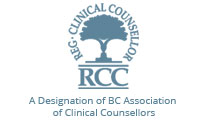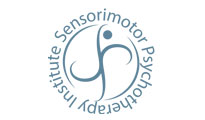FAQ
My Clients:
Due to high demands and the stage of my practice, I am only providing services for individuals 18 years and older. I provide in office or online sessions by confidential video.
My Typical Areas of Work:
- Trauma (attachment and major events) & PTSD
- Attachment / Relationship Injuries
- Depression, Bipolar & Anxiety Issues
- Eating Disorders & Disordered Eating
- Support & education for those dealing with someone in their life who has Narcissistic or Borderline Personality or traits
- Grief & Loss
- Life Transitions & Stress
My Approach
I am warm, empathetic and non-judgmental. I believe that we all struggle at times in our lives. We can all make mistakes and poor choices, we can all feel vulnerable and we can all struggle to cope, regardless of who we are or what we have accomplished in life. I will work with you very professionally and also as a genuine person. At times, I will be humorous and playful and other times I will challenge you. I may even say something you don't want to hear, but it will always be in your best interest. We will collaboratively identify your concerns and work on the areas of your life that you want to address.
My approach will be:
- About resolution not just managing symptoms
- Tailored to individual needs and personality
- Incorporate mind, body, feelings, behaviour
Types of Treatment: "The Jargon"
- Body- Centered Therapy - Sensorimotor Psychotherapy (SP): (www.sensorimotorpsychotherapy.org/html ) was developed by Dr. Pat Ogden and it combines somatic therapies, attachment theory, cognitions, emotions and neuroscience. SP is very effective for dealing with the after effects of trauma. These traumas could include experiencing or witnessing an event or multiple events, which are likely to cause humiliation, serious injury or death. SP is also effective for only attachment injuries or the combination of attachment injuries and a trauma history.
When trauma occurs, our brains can have difficulty integrating and processing the experience. As a result, our pre-frontal cortex (part of brain that does our planning and thinking) can shut down and our primitive brain which has the survival response (fight or flight) takes over.
If we are in a situation where we cannot fight (or it is best not to fight) or escape (flight) our defence system becomes overwhelmed and disorganized. As a result, we are not able to integrate or process the experience and we are left with symptoms such as flashbacks, sleep problems, anxiety, depression, shut down (freeze) and numerous behaviors (e.g...., self- harm, suicidal thoughts or behaviors, addictions) that can be debilitating. SP treatment deals with these after effects by processing stuck trauma and relieves you of the symptoms.
- Emotion Focused Therapy (EFT): Allows me to work with your core beliefs about yourself and deep-rooted emotions. We will work with emotions that are currently maladaptive (causing you difficulties in your life or relationships) and shift them into something adaptive. For example, anger that’s been problematic or a debilitating depression could be shifted to feelings of empowerment and finding a voice. This is only one example of how EFT works in treatment.
- Emotion Focused Therapy with Couples & Families: Allows me to help you understand your own individual injuries and the ones that have occurred in your relationships. I will help you and your partner (or family members) hear and support each other in deeper ways so that you can heal instead of re-visiting the same old cycle of problems.** No longer seeing couples or families.
- Attachment & Systemic Therapy: Family systems is about understanding the family you grew up in and how it impacted you and others. It helps you understand the connections, struggles and wounds, both past and present.
Family systems sees families as one emotional unit where all members impact each other. Families (physically present or not) can profoundly affect each other’s thoughts, feelings and actions. This type of therapy is about deep inner healing and healthy relationships.
- Eye Movement Desensitisation & Reprocessing Therapy (EMDR): Is a type of psychotherapy that uses bilateral stimulation (e.g...., created through sound, light, tapping) to deal with distressing material in a safe manner where the client does not need to talk about distressing memories. **No longer offering.
- Mindfulness: A set of skills that can be taught. Mindfulness will help you pay attention to what is occurring in the moment without negatively judging it or feeling that you have to numb it with unhealthy behaviors. Mindfulness will increase your ability to cope with life while decreasing your stress, anxiety and negative moods.
- Psychodynamic Therapy: Helps you become aware of how the past is influencing present behaviour or symptoms so you can address unresolved conflicts within yourself.
- Client Centered-Humanistic Approach: Is warm, empathetic and non-judgemental. It views the client as the expert of their own life and that they are capable of finding solutions
- Cognitive Behavioural Therapy (CBT) and Dialectic Behaviour Therapy (DBT): Works with your thoughts and behaviors and provides skills training, as well as, a mindfulness practice.
- Solution Focused Brief Therapy (SFBT): Is a goal directed and collaborative therapy that primarily focuses on present and future for making change.
- Psychoeducation: Is information and support to better understand and cope with an issue or a mental health concern.
- Ellen Satter Philosophy: Is a non-dieting and size acceptance approach.
- Maudsley Model or Family-Based Therapy (Philosophy): Is where parents play an active and positive role in helping their child or teen recover from an eating disorder.
How Does This Psychotherapy Stuff Work?
- It provides a safe place for you to share your thoughts and feelings
- It helps you understand yourself by seeing and making connections between your past and present
- It helps you develop self-compassion and ownership for your behavior/choices
- It helps you find a balance between acceptance and change
- It helps you develop new healthy coping strategies
- It helps you learn to manage difficult emotions and understand your body’s responses to stress
- It helps your body process trauma that is “stuck” at a nervous system level that cannot be dealt with by just talking
- It helps you improve relationships in your life through a deeper understanding of your attachment style and your family system
My Perspective About Therapy & Change:
Change can be possible. It's not necessarily easy, but it is easier with support, guidance, knowledge and feeling understood. We all struggle in one way or another and for different reasons and have different circumstance. Life is not fair. We don't choose to have mental health issues nor do we choose the country, circumstances, families, bodies or sex we are born into.
I believe that the majority of people are doing the best they can given the resources, knowledge, and supports that they have at that time. However, I also believe there is a small percentage of the population that are missing the development of conscience and the capacity to have empathy for others. Sadly, these individuals choose to do harm to others and in my opinion do not have the capacity for change.
Providing treatment requires seeing the whole person. This includes a person's thoughts, emotions, behaviors, relationships, gender, sex, sexual orientation, social, ethnic, cultural, economic and spiritual self. My role as your therapist is to help you understand yourself and your circumstances so you can gain new perspectives that will empower you to make the changes you want. I will provide you with insight, strategies, knowledge, skills, feedback and support.
The process of change and recovery is a journey not an end point. This journey often includes steps forward and backwards and slips along the way. It's what is learned and experienced during the journey that is important and that is what creates change.
Fees:
Include the GST and sessions are 50-minutes. We can also book longer sessions if needed. The fee is then based on the amount of time booked. Please call my office for current rates. Fees are based on the guidelines of the BC Association of Clinical Counsellors (BCACC) and the Canadian Association for Marriage & Family Therapy (CAMFT), as well as my training and years in practice.
Payment is by cash, cheque or e-transfer. I keep it simple. Less costs for me, means less fees for you.
- Fees for written reports
- Fees for consultations with other health professionals if 15 minutes or longer
Cancellation Policies: Fees are charged if 24 hours is not provided for cancellations or to re-schedule an appointment
Do I need a referral?
Often, I receive referrals from family physicians or other professionals in the community. However, you do not require one and you can call to book your own appointment.
Will my insurance company cover the costs?
Many extended health benefit plans will cover part or all of the costs for the service of a Registered Clinical Counsellor (RCC) or a Registered Marriage & Family Therapist (RMFT). You will have to check with your health benefit plan for details about your eligibility. I do not direct bill so you will be asked to pay for the cost of your session. I will provide you with a receipt with my registration numbers for you to submit to your extended health provider for reimbursement.
I am also a registered provider with ICBC and the Crime Victim Assistance Program. Both of these services will cover a large portion of the cost of treatment. Outstanding amounts are the client's responsibility to pay. **Currently not accepting ICBC or CVAP referrals. I do not accept Work Safe BC referrals.
Do you offer an initial complimentary session?
I am not able to offer an initial complimentary session, as the demand would fill my days and I would have less time available to offer regular, consistent services. I will, however, gladly speak to you briefly by phone at no charge and answer all of your questions.
How many sessions will I require?
We will together determine what best fits your needs. I provide both short term and longer term psychotherapy.








